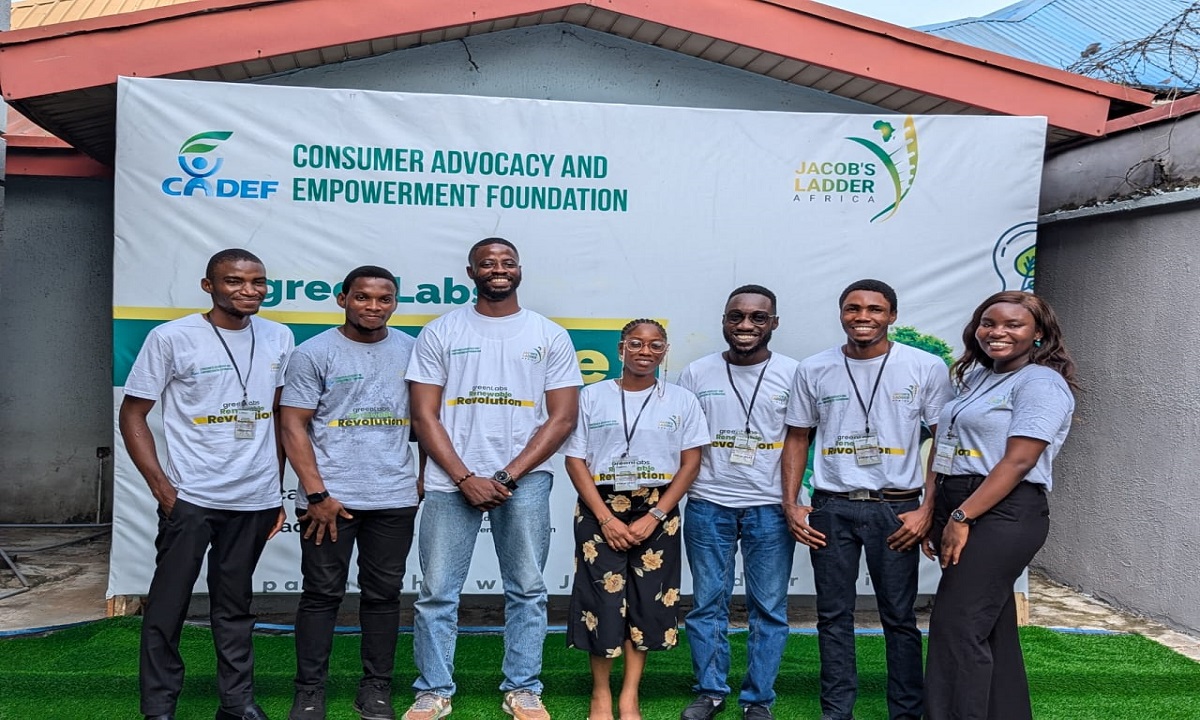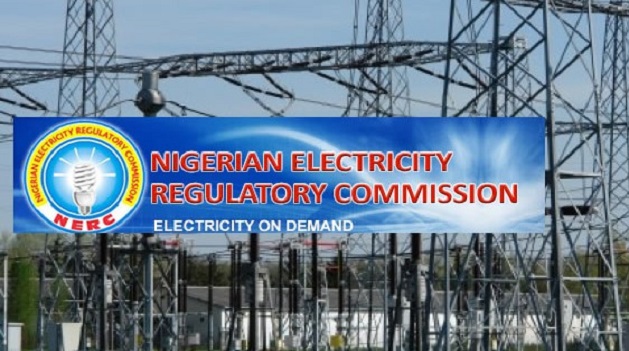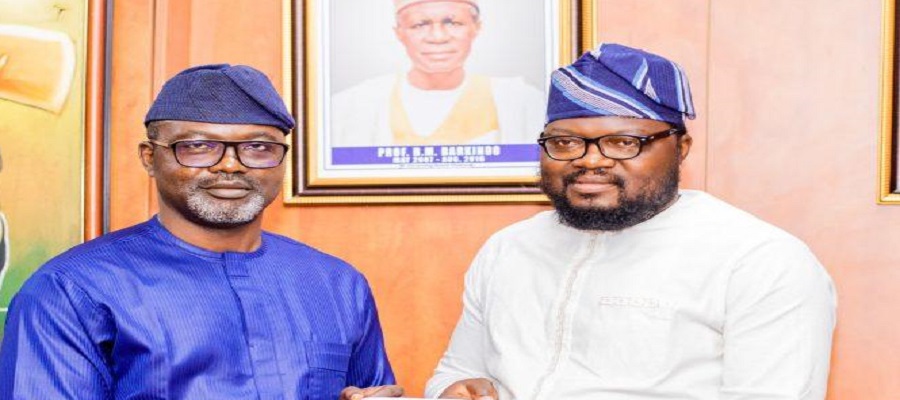News
Hydro Electric Core Generator Bags Renewable Energy Innovation Challenge 2024

Hydro Electric Core Generator has emerged as the winner of the Renewable Energy Innovation Challenge 2024, earning accolades for its innovative approach to addressing Nigeria’s pressing electricity deficit.

Out of 12 groundbreaking projects that made it to the final stage, including solutions like Waste2Light, Agroflow, and SunPod, the Hydro Electric Core Generator clinched the top spot for its unique, scalable approach to hydroelectric power generation.
Agroflow was named the Audience Favorite for this year’s competition, while E-Waste2E-Access took second place, with Loopbox securing the third position.
James Emmanuel Ikenna, the visionary founder of the Hydro Electric Core Generator, expressed his deep commitment to improving energy access in Nigeria.
“Nigeria has the highest number of people without access to electricity in the world, with over 86 million people still without power,” Ikenna said.
He believes that his innovation could bridge this gap, particularly in rural areas where access to conventional power sources is limited.
Unlike traditional large-scale hydroelectric generators that require extensive infrastructure and large dams, Ikenna’s Hydro Electric Core Generator is designed for smaller-scale, affordable deployment.
The device operates using a pump inside a tank, which transfers water to a small receiver tank acting like a capacitor, smoothing the flow of DC current.
This design eliminates the need for fuel, relying solely on water that recycles within the system, making it not only sustainable but highly cost-effective.
The Hydro Electric Core Generator’s 3kVA model, estimated to cost around N200,000 to build and around N220,000 to N230,000 to purchase, could provide a viable power source for low-income households and communities.
“You don’t need fuel, just water, which is reserved within the system,” Ikenna noted, emphasizing its affordability.
In his acceptance speech, Ikenna expressed gratitude to Consumer Advocacy and Empowerment Foundation (CADEF) and Jacob’s Ladder Africa for supporting him, while also appealing to the government, private sector, and funders to help bring his vision to life.
“This project should be made available for rural communities with limited energy access,” he urged.
“Electricity fosters great research and can drive technological advancement in society.”
In her opening remarks, the executive director, CADEF, Prof. Chiso Ndukwe-Okafor, said today concluded the three-week Renewable Energy Innovation Challenge, an initiative designed to foster clean energy solutions from innovators across Nigeria.
Held in partnership with Kenya-based organization Jacob’s Ladder Africa, the Innovation Challenge aims to equip young Nigerian entrepreneurs with the skills, mindset, and resources needed to develop sustainable, climate-friendly business ideas.
“We launched this challenge as a platform for participants to refine their ideas with the help of mentors and industry experts,” said Prof. Ndukwe-Okafor.
“Some participants brought new concepts, while others refined existing ones. Today, we’ve seen a variety of presentations that reflect the depth and creativity in Nigeria’s clean energy sector.”
Prof. Ndukwe-Okafor therefore tasked the innovators on mindset adjustment, adding that, “Without a shift in perspective, we risk following the same ineffective paths that have held back our country.
“By building the right business and financial structures, we aim to position these entrepreneurs for success and sustainability.”
Through this innovation challenge, CADEF and JLA envision creating a generation of Nigerian entrepreneurs equipped not only with innovative solutions but also with the resilience and skills to sustain and scale their businesses, ultimately contributing to Nigeria’s energy independence and economic growth.
Karen Chelangat, Chief Innovation Officer at JLA, emphasized the importance of partnerships in tackling the significant challenges across Africa.
“The challenges in Africa require collaboration among people and organizations with aligned values and visions for socio-economic gains across the continent,” she said.
“Nigeria, with its large population and vast pool of young talent, is a key player in driving impactful solutions for the region. CADEF stood out as a partner with whom we share a commitment to equitable and socio-economic empowerment.”
Chelangat spoke about JLA’s ambitious goal to create 30 million jobs in Africa’s green economy by 2033. “Africa faces high unemployment, yet global investment in the green economy is accelerating,” she noted.
“In 2022, the U.S. invested as much in renewable energy as it did in fossil fuels, signaling the global shift. Our mission is to prepare young Africans to tap into these opportunities.
“We’re focused on empowering them with skills in renewable energy, water and waste management, and sustainable food systems.”
Gaji Omobolaji Tajudeen, Permanent Secretary of the Office of Environment Services, Lagos, therefore urged the young innovators to seize the moment.
“Your ideas are not just concepts; they have the potential to reshape communities and create sustainable futures.
“We must innovate for today while considering the long-term impacts on our society, economy, and environment,” he stated.
News
LG Launches “Radio Optimism” Campaign to Spread “Life’s Good” Through Music

LG Electronics has launched a new brand campaign, “Radio Optimism,” designed to help strengthen meaningful human connections and spread optimism through shared musical experiences.

This initiative aligns with LG’s brand promise, “Life’s Good,” and addresses the growing challenge of forming genuine relationships in a technology-driven world.
The Radio Optimism campaign seeks to counteract the disconnection often felt in an era dominated by superficial interactions, such as likes and comments on social media. By harnessing the power of music, LG aims to foster deeper bonds among individuals, promoting a more fulfilling life.
“As technology advances, meaningful human connections become increasingly vital to enrich our lives. LG continues its commitment to bringing optimism into customers’ daily lives, staying true to our enduring brand promise of ‘Life’s Good,’” said Kim Hyo-eun, head of LG’s Brand Management Division.
This campaign reinforces LG’s commitment to creating enriching experiences in digital spaces where today’s consumers spend significant time. Building on this mission, LG has continuously engaged with younger audiences through participatory campaigns that bring the Life’s Good philosophy to life.
Last year’s “Optimism your feed” campaign leveraged social algorithms to foster positivity on social media. This new initiative specifically seeks to address the paradoxical disconnection in an era of hyper-connectivity.
“One of the most reliable predictors of happiness is having deep and meaningful relationships,” said Jean M. Twenge, Professor of Psychology at San Diego State University. “Yet today, many people are spending more time online and less time connecting in person. Social media in particular tends to create shallow relationships rather than the deep connections people need.
“It’s common for people to have hundreds of followers but no one to talk to in real life if they need support. We need to build more meaningful connections with those around us. That might turn around the pronounced decline in happiness that’s occurred over the last decade.”
A new global study* from LG on social connection reveals that 68 percent of people find it harder to make real friends, and a third reported having one or fewer meaningful connections in the past month, with 8 percent experiencing none at all.
Inspired by traditional radio’s unique way of connecting people through music and storytelling, the Radio Optimism campaign transforms this concept into an interactive platform where participants can create and send personalized songs to their loved ones.
Users can easily create new songs using AI-powered tools, which are thoroughly trained on a curated music dataset. These tools interpret user prompts to produce unique musical pieces and generate matching album art, providing an engaging and personalized experience. Once generated, these songs can be sent to recipients to deepen their connection and made available for others to discover worldwide.
According to the survey, nearly 9 in 10 respondents believe that meaningful connections lead to a more optimistic outlook on life. By providing a platform for individuals to express their feelings, this campaign aims to foster deeper connections and help individuals enrich their lives while spreading optimism in their own ways.
The campaign website is available in English and Spanish, with plans to support additional languages in the coming months to enable broader participation. The official website can be found at RadioOptimism.lg.com.
News
Nigeria’s Electricity Output Climbs 10.92% in Q1 2025, Boosted by Thermal Plants

Nigeria’s electricity generation rose by 10.92% in the first quarter of 2025, driven by improved operational capacity and better availability of thermal and hydropower plants supplying the national grid.

This is according to the latest report from the Nigerian Electricity Regulatory Commission (NERC) for Q1 2025.
Total energy generated stood at 10,304.47 gigawatt-hours (GWh), up from 9,289.95 GWh recorded in the previous quarter. The increase highlights stronger performance across multiple power plants, supported by improved grid dispatch conditions.
NERC noted that average hourly generation on the grid also grew by 13.39%, rising to 4,770.59 megawatt-hours per hour (MWh/h) from 4,207.41 MWh/h in Q4 2024—an increase of 563.18 MWh/h.
“The hourly generation and the total generation increased by 13.39% and 10.92% respectively in Q1 2025 compared to Q4 2024. This rise is linked to an increase in the cumulative available generation capacity of grid-connected plants,” the report stated.
A total of 19 power plants boosted their output during the quarter, contributing significantly to the overall rise in generation.
Thermal power plants were the main drivers of growth. Out of the 23 thermal plants connected to the grid, 16 recorded higher average hourly output compared to the previous quarter.
Top contributors included Delta_1, which added 157.58 MWh/h, followed by Geregu_2 (71.95 MWh/h), Egbin_1 (68.20 MWh/h), and Afam_2 (68.03 MWh/h).
Hydropower plants also supported the growth, though at a smaller scale. The five grid-connected hydro stations posted a combined increase of 54.93 MWh/h, marking a 4% improvement. Zungeru_1 led with a 23.55% rise, while Shiroro_1 and Kainji_1 grew by 12.21% and 4.80% respectively.
This first-quarter improvement reflects ongoing efforts to stabilize power supply through better plant maintenance, enhanced grid management, and more consistent dispatch across regions.
However, challenges such as fuel supply to plants, equipment reliability, and high operating costs continue to limit the full potential of Nigeria’s power generation capacity.
News
DBI, Miva Open University Partner to Advance Digital Innovation, Education

Digital Bridge Institute (DBI) and Miva Open University, Abuja, have signed a Memorandum of Understanding (MoU) to jointly promote digital technology and academic excellence in computer science and innovation.

Mr. David Daser, president/CEO, DBI, and Professor Tayo Arulogun, vice chancellor, Miva Open University.
DBI, a Federal Government-owned ICT training institute with headquarters in Abuja and campuses across Nigeria’s six geo-political zones, hosted the signing ceremony at its headquarters.
The MoU marks a significant step in formalizing and strengthening the existing relationship between the two institutions.
Signing on behalf of their institutions were
Speaking during the event, Mr. Daser praised Professor Arulogun’s leadership and commitment to academic development, which he said made the partnership possible. He emphasized that unlike many MoUs that remain inactive, this collaboration is set to deliver tangible results.
“We value this partnership and are confident it will meaningfully contribute to Nigeria’s education sector. DBI is fully prepared to implement the agreement and drive an impact across our campuses in Enugu, Abuja, Kano, Lagos, Asaba, and Yola,” Daser said.
He added that the collaboration would strengthen DBI’s National Innovation Diploma (NID) program and other initiatives through shared resources and new opportunities.
Professor Arulogun, in his remarks, highlighted the need for greater collaboration among Nigerian universities, criticizing the prevalent “do-it-alone syndrome.”
“Many institutions prefer to operate in silos, but collaboration is key. Pooling resources and working together will enhance capacity and academic output,” he stated. “With this partnership, we are ready to hit the ground running from student exchange to joint innovation projects like hackathons.”
He noted that hackathons provide platforms for discovering hidden talents and fostering innovation, and Miva is eager to integrate such activities into its academic programs.
Mr. Emeka Nzeih, head of Learning and Development, DBI, outlined the partnership’s key focus areas: student internships, real-world project collaborations, joint research in fields like AI, robotics, and cybersecurity, and shared access to DBI’s ICT labs and equipment for Miva’s students and faculty.
According to Nzeih, the initiative aims to enhance practical learning, foster innovation, and build capacity through collaborative training, research, and mentorship.

 Telecom3 days ago
Telecom3 days agoMTN Nigeria Debuts Game-Changing CPaaS Platform at NextNow Forum

 E-Financial2 days ago
E-Financial2 days agoCourt Affirms NIBSS Authority to Manage BVN

 News3 days ago
News3 days agoAMCON Confirms ₦100Bn Sale of Ibadan DisCo Amid Legal Disputes

 Telecom2 days ago
Telecom2 days agoMTN, 9mobile Commence Ground-breaking National Infrastructure Partnership

 E-Business3 days ago
E-Business3 days agoDomain of Deception as Attackers Deploy Spyware Under Guise of Legal Threats

 E-Financial3 days ago
E-Financial3 days agoNAICOM Issues New Licenses to SanlamAllianz Life, General Insurance

 E-Financial3 days ago
E-Financial3 days agoGTCO to Become First Nigerian Bank to List on London Stock Exchange

 Broadcasting3 days ago
Broadcasting3 days agoIFC, AfDB Collaborate with EbonyLife Media to Explore Supporting the African Film Industry to Drive Job Creation
















